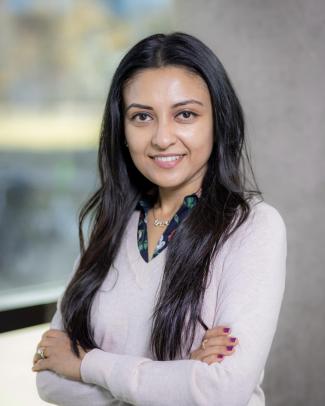Book
1. Turner, P. K., Bardhan, S., Holden, T. Q., & Mutua, E. M. (Eds.). (2019). Internationalizing the Communication Curriculum in an Age of Globalization. New York: Routledge.
Authored Chapters
i. Bardhan, S. (2019). Internationalizing the communication curriculum: Benefits to stakeholders. In Turner, P. K., Bardhan, S., Holden, T. Q., & Mutua, E. M. (Eds.), Internationalizing the Communication Curriculum in an Age of Globalization (pp. 11-20). New York: Routledge.
ii. Bardhan, S., Colvin, J., Croucher, S., O’Keefe, M., & Dong, Q. (2019). Intercultural communication: A 17-year analysis of the state of the discipline. In Turner, P. K., Bardhan, S., Holden, T. Q., & Mutua, E. M. (Eds.), Internationalizing the Communication Curriculum in an Age of Globalization (pp. 23-35). New York: Routledge.
Special Journal Issue
1. Benitez-Burraco, A., Bardhan, S., Caetano, J. R., & Pan, X. (Eds.). (2024) International translation day: A communication perspective [Special issue]. Frontiers in Communication, 9.
Peer-Reviewed Publications (Articles and Chapters)
1. Bardhan, S., Chen, Y., AlSumait F. Y., Lee, P., & Wang, H. L.* (2024). Pluriversal possibilities for the Euro/U.S.-centric intercultural communication field? Review of the GCC States and Taiwan. Annals of the International Communication Association, 48(3). DOI: 10.1080/23808985.2024.2324153 *The first two authors are lead co-authors. With agreement, the third, fourth, and fifth authors appear in alphabetical order based on last names.
2. Evans, E., & Bardhan, S.* (2023). Adult Third Culture Kids and sojourner intercultural communication: Exploring belonging through a multilevel approach. International Journal of Intercultural Relations, 96. *co-first authors, names appear in order of ascending seniority.
3. Bardhan, S. (2022). Rhetoric and intercultural communication. In Moy, P. (Ed.), Oxford Bibliographies in Communication. New York: Oxford University Press.
4. Bardhan, S. (2022). #egyptian and #tunisiangirl: The (micro)politics of self-presentation on Instagram. International Journal of Communication, 16.
5. Bardhan, S., & Cutter, D. (2021). Recruiting foreign warriors: Function of moral and temporal tropes in the Islamic State’s “Dabiq”. Rhetoric and Public Affairs, 24, 483-520.
6. Bardhan, S., & Foss, K. (2020). Revolutionary graffiti and Cairene women: Performing agency through gaze aversion. In Charrad, M & Stephan, R. (Eds.), Women Rising: In the Arab Spring and Beyond (pp. 267-281). New York: New York University Press. (Grant-funded)
7. Bardhan, S. (2018). Affordances of websites for counterpublicity and international communication: Case of the Egyptian Muslim Brotherhood. Georgetown Journal of International Affairs, 19, 3-11. (Lead article & forum piece)
8. Bardhan, S. (2018). The Egyptian Muslim Brotherhood and “Ikhwanweb”: Deliberative ethic/voice in a counterpublic’s rhetoric? Journal of Public Deliberation, 14. doi: https://doi.org/10.16997/jdd.295 (Now Journal of Deliberative Democracy)
9. Bardhan, S. (2017). Rhetorical approaches to communication and culture. In J. Nussbaum (Ed.), Oxford Research Encyclopedia of Communication. Oxford University Press. https://doi.org/10.1093/acrefore/9780190228613.013.501
10. Bardhan, S. & Wood, R. (2015). The role of culture in civil society promotion in the Middle East: A case study approach with technology for social networking. Digest of Middle East Studies, 24, 111-138. (Grant-funded)
11. Bardhan, S. (2014). Egypt, Islamists, and the Internet: The Muslim Brotherhood and its rhetoric of dialectics in “Ikhwanweb”. Digest of Middle East Studies, 23, 235-261. Reviewed by Mark Allen Peterson, Professor of Anthropology and International Studies, Miami University, in Connected in Cairo- https://connectedincairo.com/2014/12/07/the-muslim-brotherhood-on-line-i... (2014)
12. Oetzel, J. G., Dhar, S., & Kirschbaum, K. (2007). Intercultural conflict from a multilevel perspective: Trends, possibilities, and future directions. Journal of Intercultural Communication Research, 36, 183-204.

